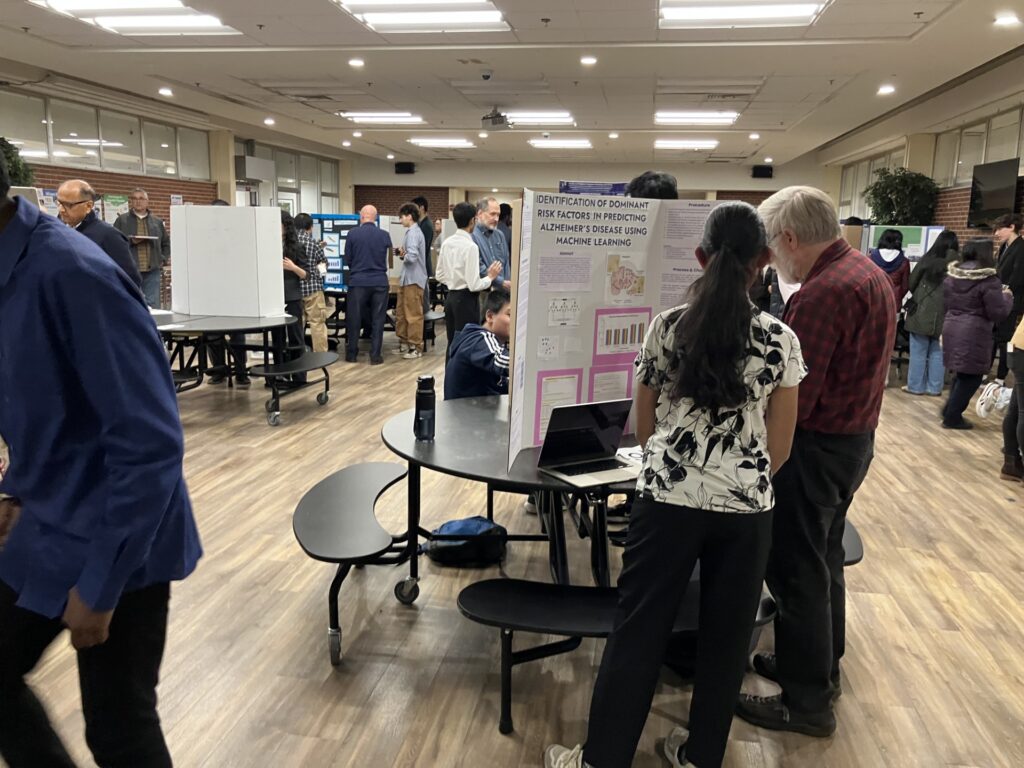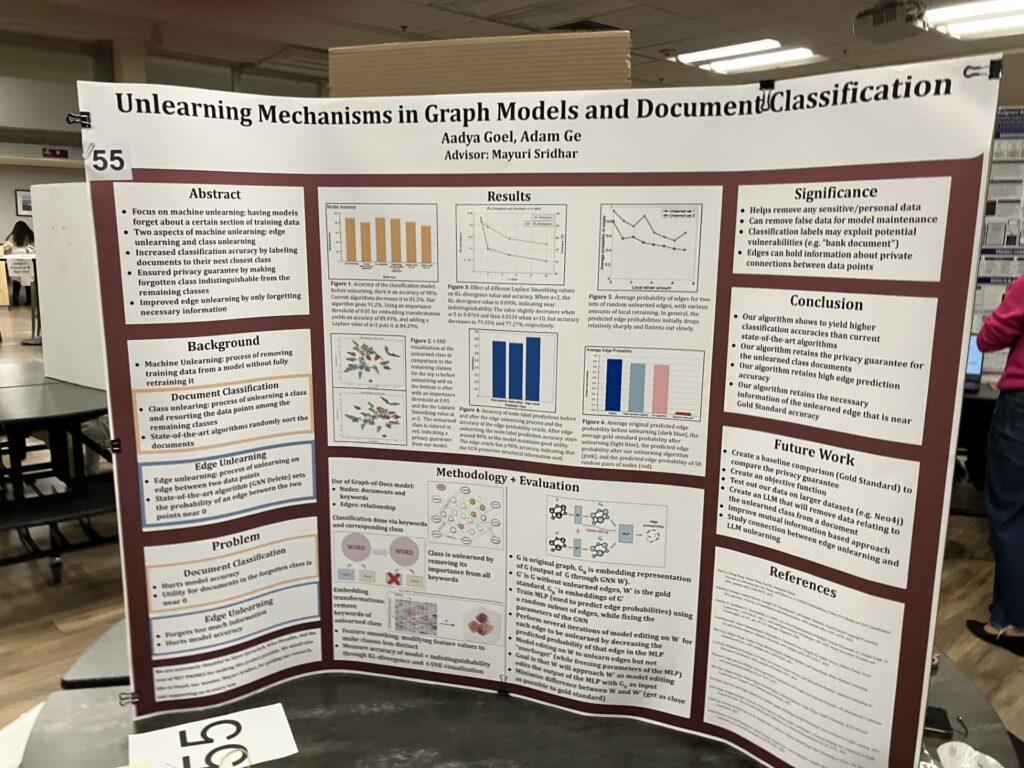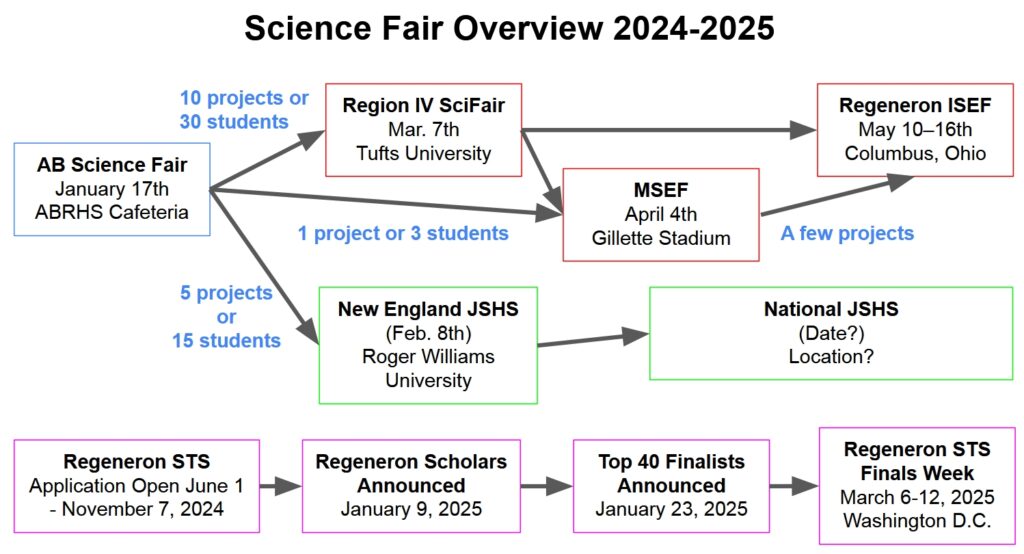Iron Group Element Production in Type Ia (read: “type one-A”) Supernovae, Using AI to Predict Heart Disease, and The Effect of Music on Mental Health. This is just a small sample of the project topics presented by the young researchers at the 2025 Acton-Boxborough Science Fair.
This event, which was held on January 17, included a total of 76 projects and involved 125 students. Each project was evaluated by four volunteer judges, who spent 20 minutes scoring each student’s technical approach, understanding of the relevant science, innovation, presentation, and supporting documentation. For 2 hours the AB cafeteria was host to a cacophony of sound and excitement, as the assembled students simultaneously engaged in a massive information transfer to a group of somewhat overwhelmed adults.

In a departure from the science fairs of prior generations, but in keeping with current technology trends, there was a strong emphasis on the use of machine learning and artificial intelligence to solve complex analytic problems. The students this year also showed a clear preference for projects that addressed biological, medical, and environmental issues. Examples include The Use of Deep Learning Models to Classify Skin Conditions (Siheon Kim and Anish Misro) and The Identification of Dominant Risk Factors of Alzheimer’s Disease (Aditi Korrapati). Computational experiments such as these are feasible, due to the availability of AI codes and data training sets that can be accessed on the internet.

Approximately 75 judges were involved in this competition. Included in this group was veteran judge and Select Board member, David Martin. First-time judge Mike Geis offered the following statement: “I was extremely impressed with the students’ depth of understanding, the amount of time that they devoted to their projects, and the high quality of their presentations. I am honored to have been invited to judge at this year’s science fair, and I look forward to volunteering again next year.”

This year’s event was organized by Mr. Brian Dempsey, who is a biology teacher and research mentor at the Acton-Boxborough Regional High School. As indicated in the chart below, taken from the AB Science Fair poster, the top-ranked projects will progress to the Region IV Science Fair, the Massachusetts Science and Engineering Fair (MSEF), and the Junior Science and Humanities Symposium (JSHS).

The three highest scoring projects this year were:
- Ram Sivaraman – “HM-Detect: A Murmur Detection and Classification Methodology Using a Novel C2-LSTM Architecture for Multi-Modal Signals”
- Anushri Pal – “Effect of Halogens and Stereochemistry of Hydantoin Derivatives on Antiviral Activities Against SARS-CoV-2 Variants: Atomistic Insight Through Computational Studies”
- Ayaan Garg – “Assessing Goldenrod Extract as a Potential Antibiotic: The Effects on Bacteria and Eukaryotic Cell Viability”
Dr. Parenti is a member of the Town of Acton Water Resource Committee and the Acton Water District Finance Committee. He served as a judge at this year’s science fair.
